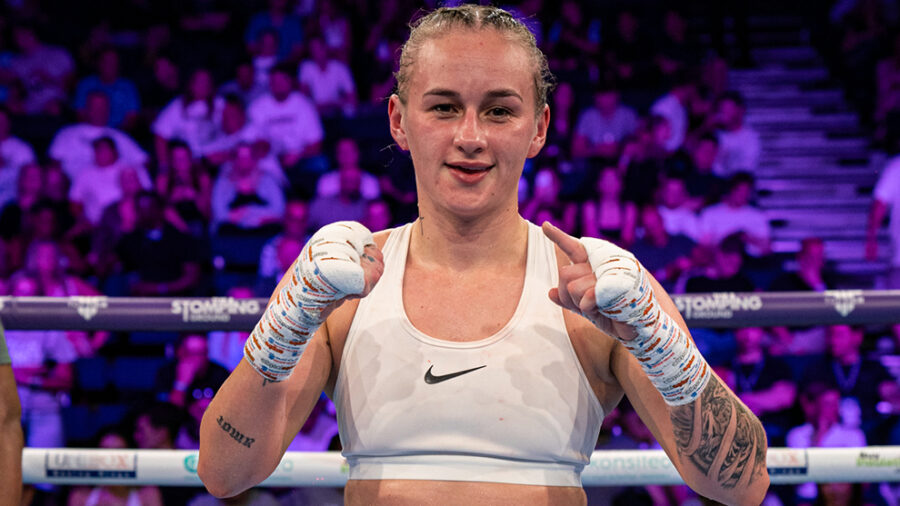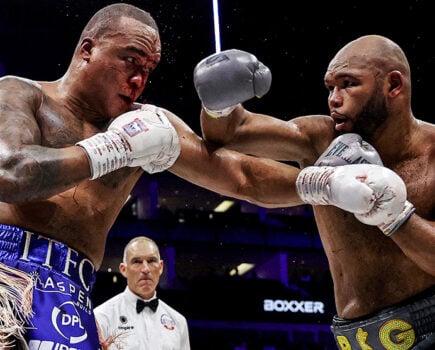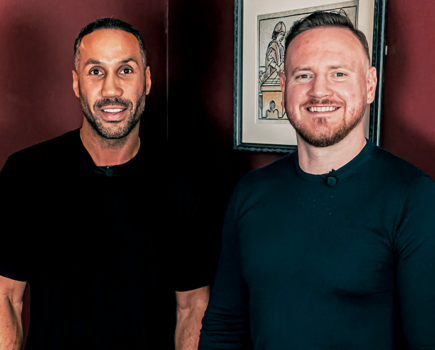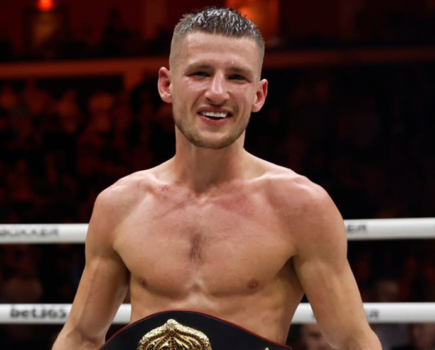HIGH SCHOOL can be an arduous time in your life.
Your body changes, your voice changes, acne shows up, you are categorised into a group, friends come and go, hearts are broken, and if that’s not enough, there are hours of studying and the pressure to pass exams.
For some, there are challenges which are troubling, disturbing and unrecognisable, but they live with you every day, creating a belief you are the problem, and there is no solution.
There are a reported *700,000 autistic people in the UK* with thousands more still undiagnosed. Whatever your age, it is never too early or late for you and your loved ones to find some answers to questions you may be unwilling to ask.
Autism can act as a mask and can also cover up an individual’s behaviour or characteristics in people who appear like any other average Joe or Josephine.
Lillie Winch, who had a successful professional boxing debut on June 29 in Brentwood, carried a lot of anger through High School. There were triggers, but she didn’t know what they were. But with the support of her family, she made a gigantic step at the age of 13 when she received a diagnosis for autism.
The 21-year-old lightweight from Enfield has a layered story and she peeled some of them back during a recent interview with Boxing News.
“When I was younger, my dad left us at quite a young age,” she recalls.
“So maybe it (the anger) was to do with that. I’ve got high functioning autism. It comes out more in my feelings and how I deal with situations. From the diagnosis, I think we kind of learned how to tackle a few things. Obviously, when we got more knowledge on it, we found out little triggers and things that would set me off and how we could deal with them.
“My mum’s been very supportive. Her and my sister done a course when we first found out to help with their knowledge on it as well, which helped a lot. So my mum and sister understand me a lot and can see when something’s bothering me now.
“Before I got the diagnosis, everyone just thought I was this angry kid that you see around punching walls and stuff,” she continues. “But when I quit, it was more like a relief as if it’s like, I’m not just this ball of anger. There’s something behind it. So it did help a lot getting the diagnosis, 100 per cent.”
Winch’s mother took matters into her own hands, insisting that something had to be done about her daughter’s anger. An outlet where she would be safe and allowed to free her mind and body of the fire burning inside.
And at 16, she dipped her toes into the world of combat sports, where, training at a Muay Thai Gym, working the pads piqued her interest.
“And then one of my friend’s uncles mentioned he had a boxing gym and he was like, ‘You should come down and try it.’ So when I got back from holiday, I went down there to try it. And Marc Dennis, my coach now, made me sick on the first session. We got in the car and my mum was like, ‘You don’t want to go back, do you?’ I was like, ‘Yeah, I want to’. And that was it. And I’ve been with him for about five years now.”
Winch is now a more laid-back person and knows she has a home at the Dennis & Dyer Boxing Academy in Loughton, Essex, where she trains to unleash hell if necessary.
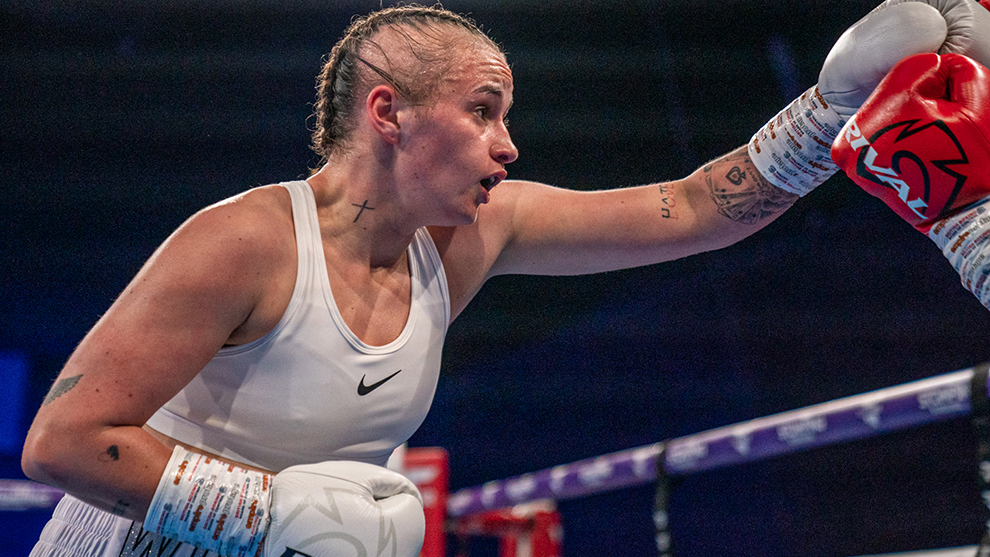
Winch’s priority is to gain experience in the pro ranks. (Image credit: Charlie Gerrard).
Having understood her anger issues and its cause, it wasn’t long before another battle crept up on her when Winch began suffering from depression at High School. Something she has a hold of now.
“This was all like one ball. It was all linked. I think it all kind of came together,” she says.
“When I was younger, it would be like a weekly thing where I’d stay in my room. I wouldn’t want to go out. I wouldn’t want to see anyone. And now it happens very, very rarely.”
Last year, while still an amateur, Winch fought five times back to back, during which time she suffered a knee injury and chose to keep competing. In the summertime, the problem became worse and resulted in her being unable to walk, run or box. A painful lesson.
Her depression returned. Staying in bed for a month became two months and eating became a source of comfort. She sat at home, ordered takeaways, and switched on Netflix. Training would eventually resume but not at a level she wanted it to be at. The weight gain, however, was beginning to drop off, but it wasn’t enough.
“I’d get demotivated and be like, ‘Oh, what’s the point? What’s the point? ‘I’d had enough. And I was just like, ‘Alright, this is it. I’m going to have my Christmas dinner on Boxing Day and get back to it.’ But I didn’t do it in an unhealthy way.
“I’ve got a nutritionist on board. He’s very good with me. So I told him what the plan was and that after Christmas Day, we go for it. And that’s what we’ve done.”
“It was a hard time,” she adds. “The dieting is hard. I obviously had days where I’d still want a takeaway. And some days I couldn’t help the craving and I’d just cave in. Then in April, I got my debut confirmed and that was a big turning point.”
Victory in her debut against Angelika Oles will be followed up by another fight on a Johnny Clark promotion on September 7 against journeywoman Bec Connolly, who is an ideal opponent to get rounds against but someone who relishes the challenge with every chance she gets. Another fight date in November is also possible for Winch.
Ten fights between the amateurs and pros leans to a slower pace of development for Winch, who is level-headed enough to realise that there is no rush. Losing more weight is on the agenda, however, with plans to eventually campaign at super-featherweight.
“A lot of the girls rush their process,” she says.
“They keep following other girls and I think it lets them down. Whereas I’m happy to stay active. But I don’t want to be rushed into big title fights. A lot of these girls have already had about 100 fights, 150 fights. I’ve only had 10 altogether. So I don’t want to rush the titles and everything. I want to gain as much experience.”
Winch’s life story features parts her fellow fighters will be familiar with. There could be some who are on the autism spectrum but don’t realise it or are choosing to ignore the possibility. She cites Tyson Fury as one of her inspirations because of how he fought back from a substantial weight gain to become the WBC world heavyweight champion and a vocal mental health advocate.
And for anyone who reads this and believes they may be on the autism spectrum and/or going through their own mental health battle, Winch had this message.
“I’d say talk to someone that they trust about it, and then see if you can go together to try and get a diagnosis or to someone to help sort it out for you if they think that’s what’s going to help 100 per cent.
“I’ve got very supportive friends and family, so I’m quite lucky in that sense, but I’m aware that not everyone has that luxury to have a good support network around them. So I’d say just get yourself a good routine. Routine is very important in my life, and if I’ve got no routine, then my head completely goes.
“So anyone who’s struggling, I’d say get yourself a routine or things that make you feel good, not sitting on social media all day. Obviously, give yourself the downtime, but prioritise what makes you feel good first, and then see how you go with that.”
*Source: beyondautism.org.uk

